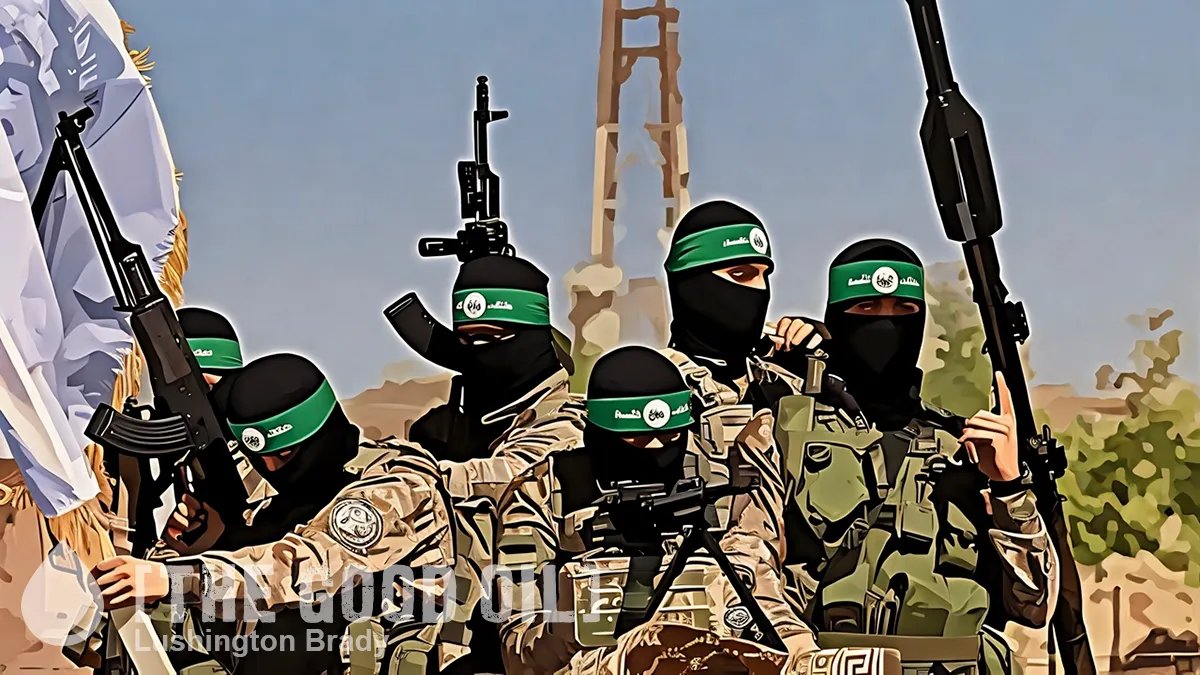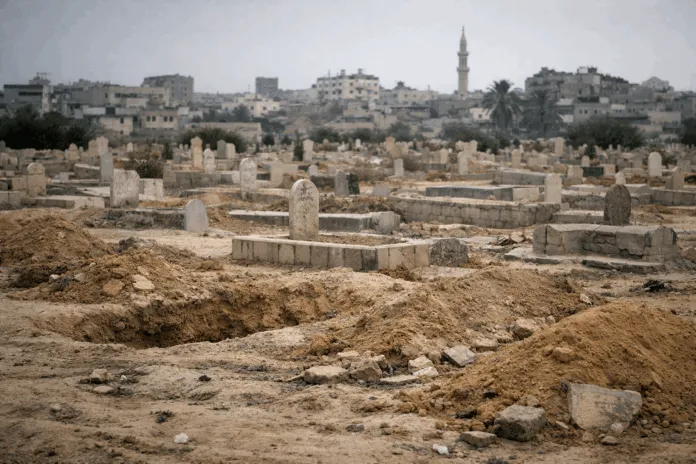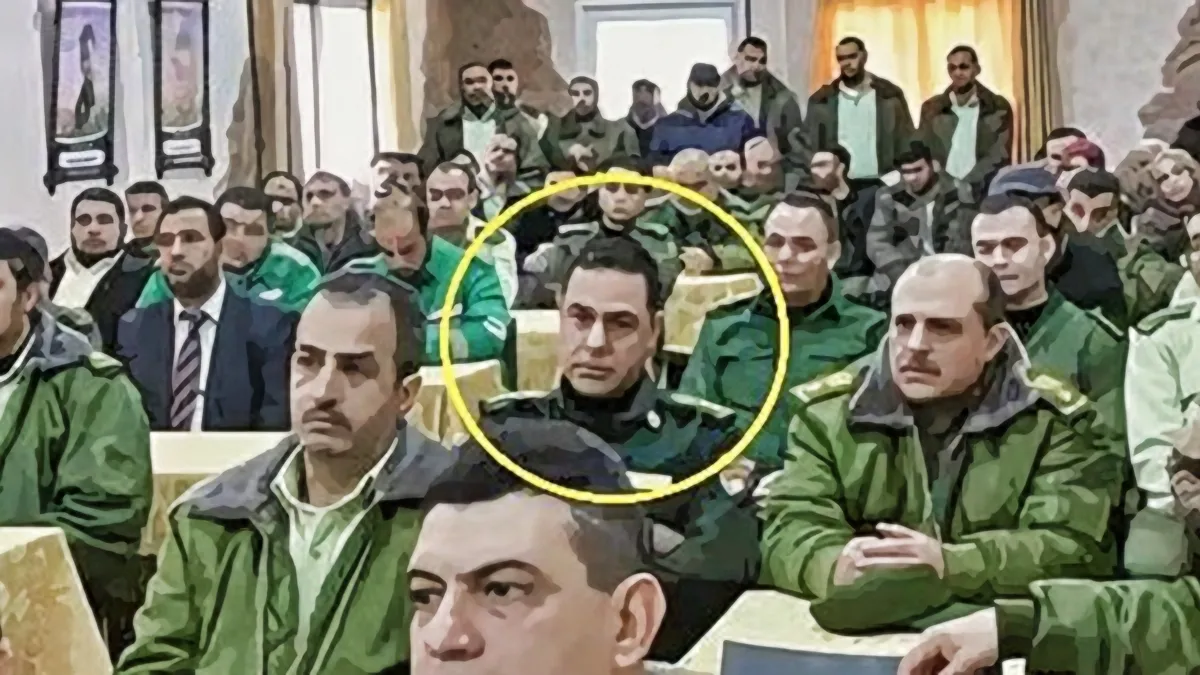Table of Contents
BICOM
BICOM provides accurate, timely and balanced information that is read by officials, experts, journalists and many others.
What’s happened: After what had initially appeared to be a promising week of negotiations, talks between Israel and Hamas have now stalled.
- While Israel is understood to have agreed in principle to a six-week ceasefire in exchange for the release of elderly, unwell, and female hostages, Hamas refused to provide a list of those who are still alive.
- While talks including a Hamas delegation continue in Cairo, Israel has not sent a delegation of negotiators given Hamas’s unsatisfactory response.
- Israeli officials said that Sinwar’s refusal to provide the required information stems from his “desire to set fire to the ground and to cause bloodshed during Ramadan.”
- It is still hoped that a ceasefire agreement can be reached by the end of the first weekend of Ramadan, but pathways to a deal appear increasingly limited, with the prospects of a breakthrough diminishing.
- On Sunday, a senior Hamas official claimed, “If Israel agrees to Hamas demands, which include the return of displaced Palestinians to northern Gaza and increasing humanitarian aid, that would pave the way for a (truce) agreement within the next 24 to 48 hours”. Israel has not commented on this suggestion.
- An unnamed Hamas official has also told the Wall Street Journal that, “while there is slow progress on an agreement for a temporary ceasefire and hostage deal, it seems unlikely that it will be reached before Ramadan’s expected start on March 10, and instead may come to fruition by the first weekend of the Muslim holy month”.
- It has also been suggested by Egyptian and Qatari sources that there has been no contact from Hamas leader, Yahya Sinwar, for at least a week, which may be further hampering and slowing hostage release efforts.
- US Vice President, Kamala Harris, called yesterday for an “immediate ceasefire” given “the immense scale of suffering in Gaza”. While reiterating her desire to see hostages released and reunited with their families, she also condemned Israel for not doing enough to ease a “humanitarian catastrophe” in the current administration’s strongest comments since 7th October.
Context: While a ceasefire and hostage release deal remains possible, its likelihood is diminishing given Hamas’s intransigence and refusal to provide Israel with a list of living hostages.
- 130 hostages remain unaccounted for, with Israel saying that at least 29 were dead on 13th February. Three hostages have been rescued by Israel’s security forces, 105 were released during a ceasefire in November, and four prior to that. Securing all hostages is Israel’s joint primary stated war aim along with destroying Hamas in the Gaza Strip.
- Fellow members of Israel’s war cabinet are said to have criticised Prime Minister Netanyahu for insisting on the names of surviving hostages as a precondition of negotiations. They argue that the list of hostages could have been discussed toward the end of the negotiations, as was the case in the previous deal.
- Senior Egyptian sources claim that both Egypt and Qatar are putting strong pressure on Hamas to provide the names of hostages to be released in a first round of releases.
- Egypt is also said to have made clear to Khalil al-Hayya, who is heading Hamas’s delegation, that it is difficult to hold talks and make progress when Hamas is split between its political leadership overseas and its leadership in Gaza.
- Egyptian, Qatari, and Israeli officials have suggested that Hamas’s Gazan leader Yahya Sinwar is wilfully delaying a deal in the hope that an Israeli action in Rafah, Hamas’s last Gazan stronghold, would lead to a flare-up in the West Bank and among Israeli Arabs. A senior Israeli official said that, “Sinwar prefers to escalate tensions in the Middle East, causing chaos and bloodshed on Ramadan, over the alternative of a six-week cease-fire and humanitarian aid that would significantly alleviate the suffering of Gaza’s local population”.
- Qatar is a longstanding supporter of Hamas, yet has also maintained an unofficial but productive relationship with Israel since at least 1996. Doha has frequently acted as an intermediary between Israel and Hamas, and played a critical role in mediating and brokering more recent negotiations along with Egypt.
- In these negotiations, Qatar and Egypt, have acted as a mutually acceptable touchpoint with strong oversight by the CIA’s Bill Burns. Both Israel and Hamas can advise of their negotiating position, as well as relaying messages between the two parties.
- The US remains deeply concerned by both Hamas’s holding of hostages, as well as the worsening humanitarian situation in the Gaza Strip. By facilitating a ceasefire, it hopes to secure both the release of as many hostages as possible, as well as an increased flow of aid into the Gaza Strip.
Looking ahead: If fighting continues into Ramadan, it is likely that Hamas will attempt to escalate hostilities into the West Bank, as well as encourage Hezbollah to intensify its own attacks on Israel.
- Given their keenness to prevent further regional conflict, the US will almost certainly continue all sides to agree to a ceasefire. War Cabinet member Minister Gantz arrives in the US for talks with senior officials today. (For more detail, including Netanyahu’s opposition to this visit, see Israeli Media Summary below.)
- Defence Minister Gallant had previously set a deadline of March 10th for hostages to be released. Failing that, he pledged that Israel would intensify operations in Rafah.
The West Bank in the Shadow of October 7
This BICOM research paper identifies dangerous trends in the West Bank, and maps Israel’s challenges in this arena in the post-October 7 context.
Download BICOM’s briefing here
PODCAST
Episode 228 | Understanding Qatar
In this episode, Jack Omer-Jackaman speaks to Barak Seener about Qatar, its regional policies, and its role post-October 7th. They discuss Qatar’s status as, simultaneously, a major sponsor of extremism and a western security ally. They also consider its role in the hostage negotiations and in the future reconstruction of the Gaza Strip. Seener is a Senior Research Fellow at the Henry Jackson Society and the founder of Strategic Intelligentia and the Gulf Futures Forum. He also co-hosts The Geo-Godfather Wars podcast. Previously, Barak was a Global Intelligence Manager at HSBC and the Middle East Fellow at the Royal United Services Institute.
Listen on Apple Podcasts, Spotify and Google Podcasts
ARTICLE
Why the Israeli Left needs a New Alliance with Religious Voters
Read here
Sky News, The Guardian , The Sun, The Daily Mail and The Financial Times all report on ceasefire talks. BBC News reports that US Vice-President Kamala Harris said “there must be an immediate ceasefire for at least the next six weeks”, which would “get the [Israeli] hostages out”. The Telegraph reports that Joe Biden told negotiators holding talks on a Gaza ceasefire to ‘get me a deal’, according to US officials. The President made the remarks to the emir of Qatar and the president of Egypt, who are helping negotiate the terms of a temporary ceasefire, on Thursday. BBC News adds that Israel is reported to be demanding reassurances on the hostages’ fate before attending. The Telegraph published its own view: “those demanding a ceasefire must answer a key question: will the terrorists be allowed to survive and regroup to organise another atrocity?”
The Financial Times reports that Benjamin Netanyahu’s allies have lashed out at senior minister Benny Gantz for an upcoming visit to the White House, in a sign of growing strains within Israel’s war cabinet and in its relations with Washington.
The Times publishes a leading article on the prospects of Benjamin Netanyahu’s political future.
The Guardian reports local elections in Israel, delayed by the war in Gaza, have returned gains for ultra-Orthodox and far-right parties after low turnout in most areas. The municipal votes were expected to serve as an indication of public opinion after the 7 October Hamas attack and the ensuing war in the Gaza Strip. Just under 50 per cent of the seven million eligible voters turned up to polling stations, and rightwing and religious parties allied with the Likud, the party of the prime minister, Benjamin Netanyahu, were more successful in mobilising their bases. The Telegraph reports that a Sky News correspondent has been accused of taking “a side” in the war between Israel and Hamas after claiming the former had committed “war crimes”. Alex Crawford, the channel’s special correspondent, also had a “community note” – a tool used to fact-check posts – attached to one of her tweets.
The Telegraph also reports that Itamar Ben-Gvir, Israel’s hardline security minister, has been barred from intelligence briefings after a series of leaks of sensitive documents
The BBC, The Times and The Independent report Israel has requested that the lyrics of its leading submission for the Eurovision song contest be changed, after it was barred last week for breaking rules on political neutrality. The lyrics included lines such as “They were all good children, each one of them”, an apparent reference to Hamas’s 7 October attack which saw 1,200 people killed after the border with Gaza was breached.
The Daily Mail reports that Yemen’s Houthi rebels have vowed to continue targeting British ships in the Red Sea after sinking the UK-owned Rubymar, the first vessel to be fully destroyed as part of their campaign over Israel’s war in the Gaza Strip.
Kan Radio reports that War Cabinet Minister Gantz arrived in Washington last night and will meet today with Bret McGurk, the US National Security Council’s coordinator for the Middle East and North Africa, National Security Adviser Jake Sullivan and Vice President Kamala Harris. Gantz will meet tomorrow with Secretary of State Antony Blinken. Haaretz writes that Gantz’s visit “shows that there is someone in the Israeli government that US officials find worthy of their trust, after the last five months added on three years’ worth of distrust and suspicion toward Netanyahu.”
Prime Minister Netanyahu is said to be furious at Gantz’s visit and to have blocked the Israeli embassy in Washington from either facilitating or attending any of Gantz’s meetings. Of this reaction, Israel Hayom’s Ariel Kahana says that “Top [US] administration officials will hear from their beloved General Gantz that no wedge can be driven to divide the Israeli leadership, and that the Israeli public and its leaders are united in their resolve to eradicate Hamas. When they speak directly with the person who is perceived as posing the greatest challenge to Netanyahu, they will hear him say that despite the political rivalry between them, the differences between them on the substantive issues are minuscule. When that is the state of things, the right thing for the prime minister to do would have been to embrace Gantz.”
Maariv’s Ben Caspit, in much stronger terms, writes that “… we’re talking about the United States. We can’t survive without it. We can’t fight another week without it. We would have come under UN Security Council sanctions long ago without it. But the Americans can’t stand Bibi, so let the country burn. Netanyahu hasn’t been invited to the White House up to this very moment (he met with Biden on the ‘sidelines of the UN General Assembly in New York’). So nobody is to go. That is sheer recklessness. We are dealing with people who long ago went off the rails. An unfit leader who is sacrificing his country’s most important strategic interests on the altar of his personal ego and the lunacy that grips the people around him. It is good that Gantz hasn’t gone along with that.” Channel 13 polling shows a majority of the Israeli public (53 per cent) believing that what motivates Netanyahu in prolonging the war is his own political survival.
Prior to Gantz’s arrival, Haaretz quotes US Vice-President Kamala Harris yesterday making her most explicitly critical statement yet about the war in Gaza. “People in Gaza are starving,” Harris said. “The conditions are inhumane. Our common humanity compels us to act. As President Joe Biden said on Friday, the United States is committed to urgently getting more life-saving assistance to innocent Palestinians in need… Yesterday [on Saturday], the Department of Defense carried out its first airdrop of humanitarian assistance, and the United States will continue to carry out these airdrops. And we will work on a new route by sea to deliver aid.”
Israel Hayom quotes IDF Spokesman Rear Adm. Daniel Hagari saying yesterday that the IDF had completed a preliminary review of civilian deaths at a Gaza aid convoy last week, determining that IDF forces did not strike the convoy and that most Palestinians died in a stampede. “The majority of Palestinians were killed or injured as a result of the stampede,” Hagari said. “Following the warning shots fired to disperse the stampede and after our forces had started retreating, several looters approached our forces and posed an immediate threat to them. According to the initial review, the soldiers responded toward several individuals.”
In Yediot Ahronot, Michael Milshtein argues that the incident “can be viewed as a major crossroads in the evolution of the Iron Swords War,” one that “should serve as a warning to Israel about what has been evolving in the northern Gaza Strip in the last few months. IDF troops seized control of this area at the beginning of the war but then left most of it, which made it chaotic and left it to fall under the control by disguised Hamas governmental operatives and by armed gangs. In recent years, a lot of people spoke about the need to turn Gaza into a local version of Singapore or Hong Kong, based on the pervasive preconception before October 7—namely, that economic incentives could change the situation and could bend ideology. The current state of affairs in the Gaza Strip is the embodiment of the exact opposite of that vision: a Somalia-like reality has evolved, replete with the destruction of the public space and civilian suffering. This is not just the result of the Israeli delay in crafting a strategy for the day after and discussing who ought to be made responsible for the northern Gaza Strip. It illustrates a fundamental lacuna in the third stage of the war, a stage that primarily involves raids and on ‘counterterrorism efforts.’ This strategy is ostensibly meant to induce the gradual collapse of the Hamas government, but it is not clear whether and when this is going to happen, while anarchy surges in the background.”
Haaretz reports that IDF fighter jets struck Hezbollah military infrastructure in southern Lebanon yesterday. Rockets fired from Lebanon towards the northern Israeli towns of Metula, Ghajar and Malkiyeh were identified throughout the day. Ynet also reports that Syrian media sources say that Abbas Ahmed Khalil, an operative of the pro-Iranian Imam Hossein Division militia who was killed on Saturday in an attack attributed to Israel on the southern Lebanon town of Naquora, was the grandson of Hezbollah Secretary-General Hassan Nasrallah.
Kan Radio features news that the IDF last night demolished the Nablus home of the terrorist who killed a mother and two daughters belonging to the Dee family at the Hamra intersection in the Jordan Valley a year ago.
Ynet includes news that senior IDF figures have been consulting with lawyers ahead of the inquiry into the failings of October 7 that was announced by Chief of Staff Herzi Halevi last month. “The inquiries are expected to be completed by late May and then be presented to the General Staff and the public and will be the basis of a national commission of inquiry that is to be empanelled and work throughout the year, unless the government steps in to delay or disrupt it. The testimonies given by those questioned could be used against them in the national commission or in criminal proceedings but would initially be part of the military’s own probe.”
Recommended Reading
Did Iran just blink?, Dr Avigdor Haselkorn, Ynet
- “As tensions with US and Israel rise, Tehran shows signs of de-escalation, halting militia attacks, cutting near-weapons-grade nuclear material and reshuffling forces in Syria; yet, increased Hezbollah strikes on Israel highlight the situation’s complexity.” Read more
Israel’s Defense Minister Gallant Has Trapped Gantz and Rebelled Against Netanyahu, Israel Harel, Haaretz
- “Nobody suspects that Defense Minister Yoav Gallant doesn’t see defense as his top priority. But Gallant also knows very well that there’s no chance of enacting legislation that will actually lead to tens of thousands of yeshiva students enlisting” Read more
The UAE’s humanitarian aid operation is key to helping Gaza, Seth J Frantzman, Jerusalem Post
- “Over five months of war, the humanitarian angle has taken on renewed importance as Gazans are now receiving air drops and there is discussion of a new hostage-prisoner deal between Israel and Hamas.” Read more









